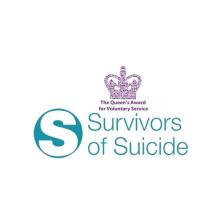Suicide
If you are having thoughts of suicide, it is important that you get help. Speak to someone you trust, like your GP, or call Lifeline on 0808 808 8000.
Help in an emergency
If you or someone else is in immediate danger of suicide or you require urgent medical attention, please call 999.
Suicide
When feeling overwhelmed or in pain, some people may have thoughts about suicide or not wanting to be alive.
If you are thinking about suicide, it is important to know you are not alone. Many people have suicidal thoughts and difficult emotions or feelings. Help and support is available.
People experience suicidal thoughts for many reasons. Thinking about suicide is not necessarily about wanting to die. It may be about being in too much emotional pain or in too difficult a situation to think, or see, that it is possible to keep living.
Thoughts of suicide can either come and go or they can be constant. It is important to remember that you don’t need to act on thoughts of suicide. The vast majority of people don’t act on their thoughts. If you feel that you want to act on your thoughts, remember you can choose to keep yourself safe and get help from someone else. This could be someone you trust, such as your GP or a Lifeline counsellor. Lifeline counsellors are available 24/7 to speak to anyone experiencing thoughts of suicide.
Signs someone might be feeling suicidal
When someone is having thoughts of suicide, you may notice changes in their behaviour or things they say.
- They may be more irritable than normal, with the smallest thing causing them to get annoyed with themselves or others around them.
- They may be spending more time alone and not want to go out and do the things they normally enjoy doing.
- They may complain of feeling tired and having disturbed sleep patterns.
- They may be skipping meals or eating more than normal.
- They may be misusing alcohol or drugs, or taking days off work, school or college.
- They may be making arrangements, such as giving away prized possessions (for example pets or family heirlooms).
- They may talk about not wanting to be around or that people would be better off without them.
Remember, we are all different and not everyone will display all of these signs.
If you are worried or concerned about someone else, talk to them about your concerns. Ask them how they are feeling and if there is anything you can do to help them. Tell them that you have noticed that they haven’t been themselves recently. It’s okay to ask them directly if they are thinking about suicide. The worst thing that can happen is that they will tell you to mind your own business, but at least they will see that you cared enough to ask. Find out more about supporting someone.
Things that can help with suicidal thoughts
Talking to someone you trust, such as your GP, a mental health professional or a Lifeline counsellor (call 0808 808 800), is important if you are having thoughts of suicide and essential if you are thinking about acting on your thoughts. Speaking to someone can help you stay safe and find other solutions.
Some techniques which might help you manage your thoughts of suicide are:
- Put off making any decision about acting on your thoughts of suicide today. Instead focus on the now and getting through the day.
- Do physical or grounding exercises to calm your nervous system. There are apps that can help.
- Do some breathing exercises. Gently breathe in through your nose and out through your mouth, keeping the pace slow and regular. Then, starting at your toes and working up to your head, slowly tense and then relax all the muscles in your body. Practise this for around five minutes.
- Distract yourself with something you enjoy, like reading a book, listening to your favourite music or going for a walk.
- Be around others or go to a safe place, like a friend’s house.
- Avoid drinking alcohol and don’t use drugs.
- Think back to some of the things that have made life meaningful in the past. It could be pets, people, music or something you’ve enjoyed doing. Remember you can have these experiences again.
- Remember feelings of pain are very real, but it is important to know these feelings will pass.
- If you have a safety plan, use it to help yourself keep safe.
Lifeline
Lifeline is Northern Ireland’s crisis response helpline for people experiencing distress or despair. Lifeline is available 24 hours a day, 7 days a week, every day of the year. Calls to Lifeline are free.
Lifeline will support people living in Northern Ireland of every age, gender, ethnicity, religion, disability and sexuality.
Lifeline counsellors are skilled at supporting those experiencing thoughts of suicide.
Call Lifeline on 0808 808 8000 and find out more on Lifeline’s website. Deaf people and those with hearing difficulties can contact Lifeline using Textphone through the Relay UK app on 18001 0808 808 8000. Interpreting support is also available.
Bereaved by suicide
The death of a family member, friend or someone you know is never easy, but losing someone by suicide can be even more difficult and can create a range of intense emotions. If you are struggling or need to talk to someone, call Lifeline on 0808 808 8000.
The Help is at Hand booklet provides practical guidance and emotional support following a possible death by suicide.
Support is available to people across Northern Ireland who have been bereaved or affected by suicide. Find out about the support available in the Minding your head service directory.
Useful resources

Concerned about suicide leaflet
This leaflet has helpful information for anyone concerned about suicide.

Comkit
Comkit has developed an empathic communication toolkit to support families, communities, agencies and representatives in what to do and say at a time of heightened suicide concern.

Lifeline
Lifeline is Northern Ireland’s crisis response helpline. Call Lifeline on 0808 808 8000.

Help is at hand booklet
Support after someone may have died by suicide in Northern Ireland.





